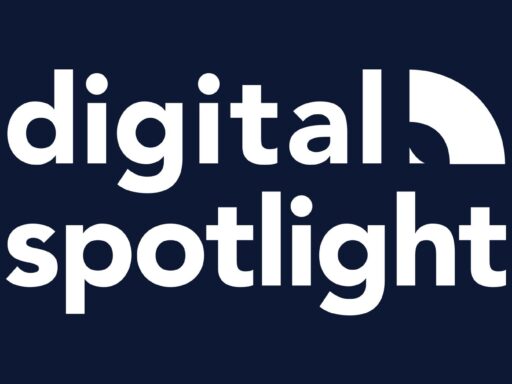Having restructured and centralized his team at L+R Hotels, group chief commercial officer
Joe Pettigrew is ready for the next challenge: transitioning from SEO to GEO.
GEO, short for generative engine optimization, is the business of ensuring a brand is
picked up by large language models (LLMs) like ChatGPT, Gemini or Perplexity. These
generative artificial intelligence (AI) tools are increasingly being used by people to find
information.
While general search engines still reign among online resources used for trip research, AI is
rapidly being integrated, according to Phocuswright’s “Chat, Plan, Book: GenAI Goes Mainstream”
report, published in July. In a survey it found that nearly one quarter (22%) of U.S. travelers
believe they utilized AI-generated search results.
Rather than typing “hotels in central London,” a user might instead write: “I want to go to
London… see Harry Potter… sightseeing tour… museums.” Queries made through AI are long;
they contain an average of 23 words, compared to four for traditional search, with sessions
averaging six minutes, according to digital marketing platform Semrush.
Hospitality brands are now trying to figure out the best way to appear directly in the detailed
answers the LLMs are returning. The stakes are higher, too, because AI may only highlight
one or two sources in its responses, according to hospitality technology company Cendyn,
which warns that if a hotel is not optimized for GEO, it might never appear in these answers.
For digital marketers, it’s yet another strategy to consider on top of other shifts that include
the growing importance of influencers and rising advertising costs.
Betting on PR—for now
LLMs interpret and synthesize information across a range of sources, but lean toward
authoritative publishers and trustworthy content rather than a website’s visibility, keywords
and backlinks. That can mean media outlets like The New York Times or National
Geographic will often be cited. AI search also contradicts traditional SEO (search engine optimization) wisdom about
authority, expertise and source credibility too, said Semrush.
Subscribe to our newsletter below
This detour from traditional SEO goes against the better judgement of Pettigrew.
“I’m the biggest skeptic when it comes to PR value for hotels,” he said. “But looking at AI
made me realize that if I were to hedge my bets, I think PR and communications will be the
next sort of SEO and performance marketing.”
As a result he created the new role of director of brand and communications at L+R Hotels,
which was recently filled by Gemma McAloon, former senior vice president of public relations agency W
Communications in North America.
“We’re building an entire team to make sure we become
the best hotel management company at pitching and creating stories and finding ways to tell
the stories,” Pettigrew said.
Keeping the spirit alive
While L+R Hotels, with its portfolio of more than 100 properties across the globe, has the
financial clout to heavily invest in GEO, smaller businesses are equally taking action.
“One thing I have done recently is introduce an FAQ page on our website, as Gemini and
ChatGPT seem to be taking information from there,” one U.K.-based hotelier told
PhocusWire.
New independent boutique hotel The Mandrake is also rethinking its strategy. For example,
its FAQ page already reveals an AI-friendly, conversational tone.
Senior marketing executive Olivia Harrison said the hotel is now adapting its direct
booking channel to complement AI, ensuring it remains the “strongest source of truth” and
that the information pulled into AI results is not just factual, but complementary to the spirit
of the property.
This is likely a challenge for many hotels today: more digital PR links scattered across
trusted content help generate AI-powered search results, but hotels risk ceding control of
their digital identity.
Harrison thinks she has a solution. “We are updating our website copy, making it AI-friendly,
clear and structured, allowing AI crawlers to parse it with ease,” she said. “At the same time,
we continue to weave in our distinctive brand voice, mystique, art driven creativity and
seductive personality. This way, while AI is delivering the facts, only The Mandrake’s own
channels can convey the soul of the hotel.”
Agency shake-up
Many hotels work with digital marketing agencies, and L+R Hotels’ Pettigrew believes they
should be challenged on how they are preparing for the new world of AI-driven search.
While
his mission to centralize operations extended to marketing as well as sales and other
functions, he envisages picking a single agency to
execute any new GEO strategy for its various brands in the future, rather than each hotel working with its own agency.
We’re building an entire team to make sure we become the best hotel management company at pitching and creating stories, and finding ways to tell the stories.
Joe Pettigrew, L+R Hotels
“Different hotels still use different agencies. When I asked the agencies how they are
viewing AI and how it might impact us in the future, none of them were actually thinking too
hard about it,” he said. “At some point, maybe next year, we will combine all the agencies
into a single agency that we use for the group. The idea is that one is aligned with our vision
and will at least challenge us.”
Spotting an opportunity
For emerging brands, GEO stands to heavily influence digital marketing from the get-go.
Newcomer Mayfield Hotels, for example, launched in September this year as a new soft brand collection of 100 independent U.S. and U.K. midscale hotels.
“GEO is front and center for Mayfield and is completely aligned with Mayfield’s ethos of
authenticity, which is to connect the real-life qualities of unique independent hotels and the
attributes of their surrounding communities with traveling workers, families and groups
seeking value accommodation,” said co-founder Thomas Magnuson.
Unlike traditional SEO or pay-per-click (PPC), which often leans on broad advertising claims, Magnuson
thinks that GEO will be a mechanism that can spotlight genuine experiences, ensuring that
what potential guests discover online reflects the property.
At the same time, he believes traditional SEO remains important, describing it as
“fundamental as electricity or plumbing”.
Like L+R, he envisions a central marketing function
to give its independent hotels an advantage over larger chains. It means leveraging scale,
helping with consistency and giving its hotels the chance to make a splash on both global
and local levels.
Individual hotels will still be able to carry out their own marketing, and Mayfield’s role is also
to amplify any efforts.
On top of GEO, travel and tourism brands are increasingly being encouraged to consider
influencers, not least because social media is becoming more ingrained in search,
evidenced by Instagram’s recent decision to allow public posts from professional accounts to
be indexed by Google.
In the future Mayfield plans to engage with influencers to promote the brand, even at a
“grass roots” level.
“You will hear from our 100-plus hotels and their guests soon,” Magnuson
said.
The question is to what extent does GEO consider influencers trustworthy?
Rising media costs
Elsewhere, a new report has highlighted how media buying costs are rising sharply, with
increases from 20% to 40% year-over-year across digital platforms, creating more
headaches for hoteliers.
The surge is driven by intensifying competition for limited ad inventory, heightened
bidding activity from OTAs, and broader macroeconomic and regulatory pressures,
according to the Cendyn Hotel Digital Marketing Performance Index.
While GEO can cater to AI search, the report advocates for a wide approach to AI-optimized
media solutions, which have emerged as “standout performers” to help drive direct bookings.
In particular it calls out Google’s Performance Max for travel goals (PMTG) as an almost-savior for the hospitality industry.
PMTG is a goal-based campaign type that allows
advertisers to access all of their Google Ads inventory from a single campaign.
“While not a substitute for foundational channels such as search engine marketing and
metasearch, PMTG delivers strong results both as a standalone driver and as a halo effect
across the broader media mix, enhancing overall campaign performance and return on
investment,” it states.
However, even Performance Max has come under fire for being opaque, with marketers
simply having to trust Google’s own AI “black box” technology to deliver results, although
that is now reportedly improving.
Regardless of the direction brands choose for future digital marketing, companies should
experiment and establish which strategies help them stay visible in an AI-driven world.
“Whether you like it or not, it’s happening. When you look at the referral traffic that comes
today from ChatGPT, it is already 1% of our traffic,” said Pettigrew.
And whether shifting from search to storytelling, or swapping keywords for conversations,
hospitality organizations in particular should not lose sight of what exactly they want to
resonate with audiences. GEO might have the potential to upend digital marketing—but as
with most aspects of generative AI, the rules are very much still being written.
The Phocuswright Conference 2025
Join us in San Diego from November 18-20 to hear executives from Accor, citizenM, Cloudbeds and Peregrine Hospitality discuss the current trends in hospitality and the guest experience.






